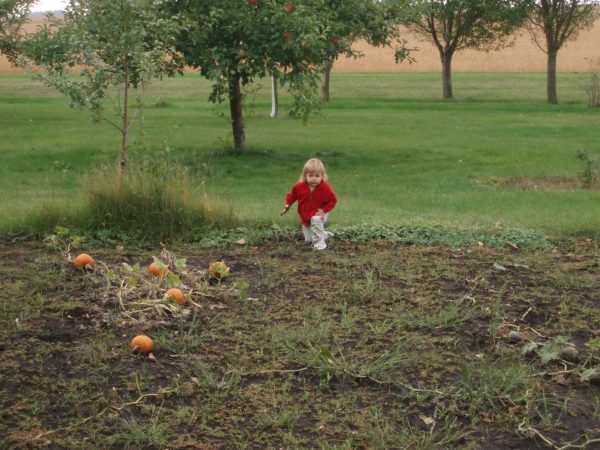School has a lifelong impact on us
The highs and lows of grade school determines where we go in the next chapter of our lives
Many psychologists make note about “childhood amnesia,” telling us all that no average person can remember anything before the age of approximately four years old. I remember my first day of school when I was 5 years old. The memories are surprisingly vivid once I was enrolled in Kindergarten, and I remember my feelings and how I looked at everything around me, and how I missed my mom and dad, and didn’t really understand why I couldn’t see my parents. I can remember different memories and strong feelings in each grade of school I’ve experienced so far. They were all unique, and realizing how much school takes over my thoughts even on weekends or during the summer or after school is just making the “graduation/get your life together” stuff even more onerous to comprehend and act out on.
In Kindergarten I was shy but made two good friends; first grade I was adapting to cooperating with other kids in my class; second grade I was excited to watch Reading Rainbow; third grade I didn’t like my teacher; fourth grade I met my current best friend; fifth grade I cried about homework for the first time; sixth grade I met more people my age; seventh grade I learned that there’s struggles even between friends; eighth grade I found my passion; ninth grade I learned that school is about to get a lot harder; tenth grade I learned to love to gossip; eleventh grade I cried about homework some more.
For this final year of grade school, learning with the people I’ve known for almost my whole life, I already have experienced the thought that my whole life has just been school, and the thought of someday getting closer to being out in the real world makes me feel totally indifferent. In other words, psychologists obviously know what they’re talking about. I only have a few memories from when I was too young to be in school, but memories shift and your thoughts change over time, and you don’t realize that your entire life so far has just been shaped around going to school.
I have a love-hate relationship with school. It’s been 13 years and I still don’t know if I like it or not. I like the way it keeps me close with my friends; I like the way it gives me the chance to branch out without even having to try too hard. I don’t like when homework is hard, or when I get angry with teachers, or when everything seems so unreasonable. But it’s school, and without it, I wouldn’t be passionate; I’d be neutral. I would much rather be angry and sad and happy and excited about something all at the same time than to be completely bored and neutral about it. My thoughts center around grade school, as does everyone else’s from the age of 5 up until the age of 18.
We are all so deeply convinced that school is either bad or good, without considering what’s even there. We solely base our liking for school and how it affects our lives on whether or not we enjoy waking up early, doing homework, or studying. Public school has been a thing for many generations, most of our living family members have gone to public school when they were younger, and they either say high school is the best time of your life, or that it doesn’t matter at all in the end. It depends on your outlook and how much you really focus on how school affects your life.
“Being a public school parent is like being unhappily married,” Jim Morekis from Connect Savannah says, “You’re so deeply invested you’re often the last to see that it isn’t working out. Then there’s a crushing realization that the marriage is irretrievably broken and you can never get those years back.”
Some would say referring to submitting to school customs as Stockholm Syndrome is just too extreme. Why would we compare just simply getting your education and defending your school to being dehumanized and manipulated into thinking that a toxic thing is good for them? Some professionals (and non-professionals) actually claim that not only students exhibit Stockholm Syndrome from school, but teachers as well.
“Not only are people obedient to authority, but in highly stressful situations victims will actually defend their abductors. This effect, known as Stockholm Syndrome, may seem irrational to the outside observer, but to the captive, the preservation of the self becomes attached to the needs of the abusive abductor,” says Nancy Flanagan from Education Week.
On some levels, yes, it is obvious that we sometimes feel absolutely tortured when we have to obey authority, like at any job or school or just about anything, but saying students and teachers exhibit Stockholm Syndrome is a little bit of a stretch.
Our thoughts simply revolve around school, and that’s okay, I think. But how crazy is it that it’s going to go away so soon? Just in May seniors are going to graduate and separate into different lives away from high school. Unless you were either bullied or you were crowned king or queen in highschool, you’re going to end up dismissing elementary, middle, and high school, and you’re going to be one of those people that tells kids that “school was just a small part of your life.”
Maybe going to school actually is a much simpler concept than professionals (and non-professionals) explain it. Most teachers tell us it’s a way to prepare for the future and to learn about yourself and explore things, just in a more secure way with scheduled time and homework. I actually agree though. Sometimes I do find going to school an enjoyable thing. I get to go to school to participate in some of my favorite classes that I actually like outside of school too, and I see my friends, and it’s nice to sometimes get to talk to other adults who aren’t just family members or my friends’ parents.
Yes, our thoughts and lives do revolve around school, but then someday they’re going to revolve around work, or family, or friends, or pets. Ultimately, it teaches you to revolve your life around yourself. The discipline we get in school from teachers and authority in general is no different than the discipline you’d get from yourself.
Everyone’s lives are different and things play out uniquely for everyone, but school has given me very mixed memories so far, and that has resulted in passion. It’s already safe to say after about 13 years that I completely understand why school has “held us all captive.”
Your donation will support the student journalists of Fargo North High School. Your contribution will allow us to resume physical printing of our newspaper for students at Fargo North!




